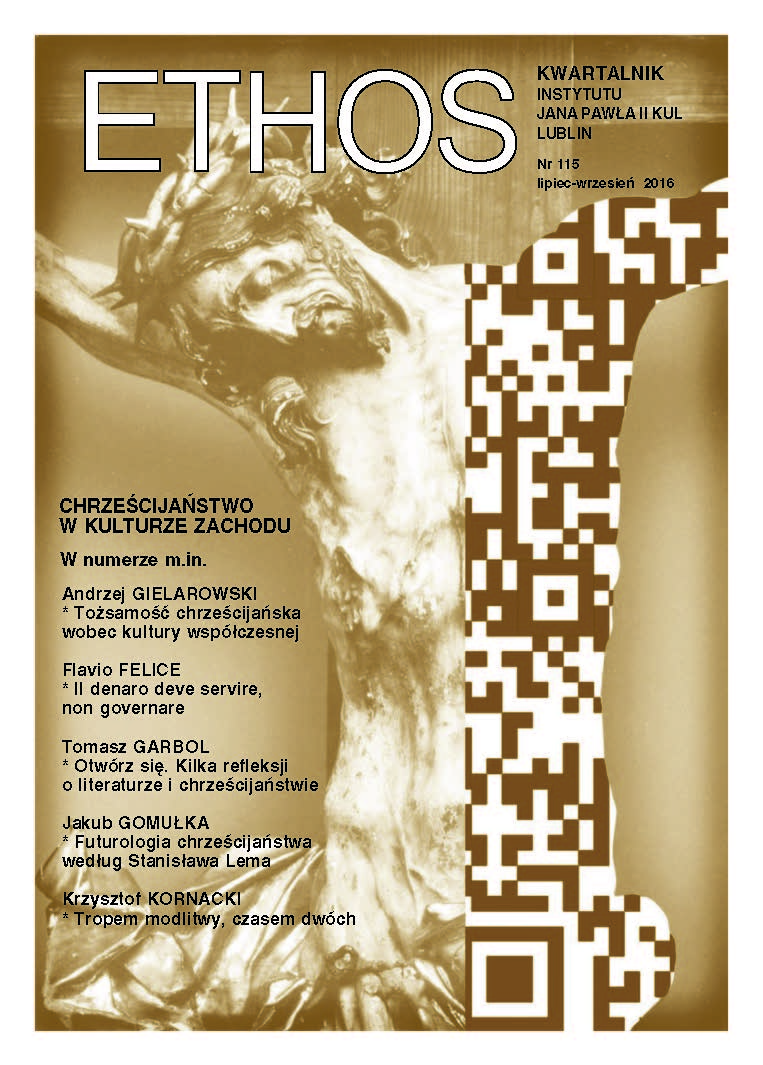Tradycja – pamięć – partycypacja. Kilka uwag po lekturze artykułu Sławomira Kapralskiego Milczenie – pamięć – tożsamość. Fantazmat „Cygana” i ambiwalencja nowoczesności
Tradition, Memory, Participation: Some Remarks on
Sławomir Kapralski’s Article “Silence, Memory, Identity: The Phantasm of a ‘Gypsy’ and the Ambivalence of Modernity”
Author(s): Przemysław RotengruberSubject(s): Christian Theology and Religion, Philosophy, Ethics / Practical Philosophy, Social Philosophy, Theology and Religion
Published by: Katolicki Uniwersytet Lubelski Jana Pawła II - Instytut Jana Pawła II, Wydział Filozofii
Keywords: tradition; history; social memory; cultural memory; inner cohesion; empirical sensibility
Summary/Abstract: The present paper is inspired by Sławomir Kapralski’s article “Silence, Memory, Identity: The Phantasm of a ‘Gypsy’ and the Ambivalence of Modernity” (Ethos 29, no. 1 (2016): 185-202). While sharing Kapralski’s concern about the lot of the Roma, a national community present in Europe from time immemorial, the author questions Kapralski’s diagnosis of the actual political situation of the Roma. The object of the polemic is Kapralski’s arguments concerning the permanence of the memory of the Roma, the role of history as the teacher of life (which successfully competes with the Roma’s tradition—romanipen) and, last but not least, the capability (and willingness) of the Roma to participate, together with other nations, in the debate on their common future. The objective of the article is to demonstrate that the way the Roma conceive of their history is only apparently similar to that of other collectivities. While the Roma’s social memory preserves a similar permanence, they prove incapable of transforming this memory into a memory of culture. As a result, instead of drawing conclusions from their experience, the Roma tend to let this experience fade into oblivion. Their participation in the historiographic discourse largely follows similar lines. While it is the case that the history of the Roma is (symbolically) appropriated or annulled by their political environment, the responsibility for this state of affairs lies solely with the Roma themselves. Those who are absent are always in the wrong.
Journal: Ethos. Kwartalnik Instytutu Jana Pawła II KUL
- Issue Year: 29/2016
- Issue No: 3
- Page Range: 283-291
- Page Count: 9
- Language: Polish
- Content File-PDF

